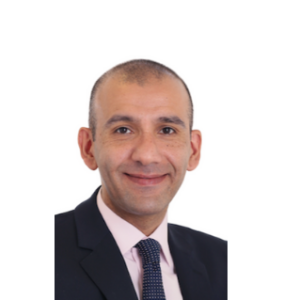Mr Zaid Sadiq, Consultant Oral and Maxillofacial Surgeon, discusses the complications and challenges associated with wisdom tooth and dental implant surgery.
Problems with the third molars, or wisdom teeth, are extremely common. Often, there is not enough space for the tooth to erupt into its normal position. If this happens and the tooth erupts at an angle, it is known as an impacted wisdom tooth. While some impacted teeth do not cause any problems, it is often difficult to maintain good oral hygiene if the teeth are very close together. This can lead to issues such as pain, swelling and infection in the gums, and decay or damage to the adjacent molars. In order to avoid these problems, it is common for the wisdom teeth to be removed. Up to 75% of the population have had at least one wisdom tooth extracted and it is the commonest dental surgical procedure. Most patients will experience some discomfort and swelling in the area for a few days after tooth removal, but some will suffer more serious complications.
As a rule of thumb, the more badly the tooth is impacted, the more complex the procedure to remove it will be. For very complex cases, referral to a specialist oral surgeon may be the best option. X-rays should be taken prior to removal of the tooth, as these can help to determine the level of risk involved. In some patients, the x-ray will reveal that the roots of the tooth project into the floor of the nearby sinuses. These patients have a greater chance of developing conditions such as oroantral fistula and altered sensation postoperatively, and it is important to avoid these conditions occurring if possible.
The lingual and inferior alveolar nerves lie very close to the lower wisdom teeth, but the exact position varies. There is a risk that these nerves will be damaged during removal of the teeth, particularly if the surgeon has failed to determine the exact position of the nerves before surgery. Damage can result in reduced sensation in the tongue, teeth, gums, lower lip and chin, which can be debilitating. While in many cases, this phenomenon is only temporary, in some patients it is permanent. In cases where there is prior evidence that a nerve lies very close to the teeth, a coronectomy, in which only the crown of the tooth is removed, may be the most appropriate procedure for extraction. A complete extraction may leave a surgeon open to accusations of negligence, should issues with the nerves subsequently occur.
The teeth immediately adjacent to the wisdom tooth can also be damaged during extraction procedures. This is often due to the fact that the impacted wisdom teeth push against the other teeth and it can be very difficult to remove them if the teeth are tightly packed together. Damage can lead to further complications and may eventually lead to the removal of additional teeth.
In recent years, the use of dental implants to replace damaged or missing teeth has become increasingly popular. Many patients assume that a dental implant will last a lifetime, whereas a lifespan of around 15 years is probably more realistic. The failure rate varies, and is around 5% for an implant in the lower jaw and 10% in the upper jaw. If the patient is not made aware of these facts before surgery, accusations of negligence may ensue if the implant eventually fails.
As with wisdom tooth removal, preoperative x-ray imaging is vital in order to avoid damage to the underlying nerves. Surgeons also need to select patients carefully, as not all will be suitable for the procedure. While there are few conditions that would completely prevent a patient from undergoing this type of surgery, some may increase the risk of failure. In particular, patients who are taking medications that decrease bone breakdown, such as those used in osteoporosis or metastatic cancer that has spread to the bone, may develop a condition called medication-induced osteonecrosis of the jaws. It is imperative that a full history is taken in these patients so that this condition can be avoided. Often, it is not the disorder itself that presents a problem, but the degree to which it is under control.
Many implants fail because the soft tissues surrounding the implant do not remain stable. Therefore, surgeons need to have sufficient experience to create stable tissue during the procedure, as well as an anticipation of potential complications and sufficient knowledge of how to manage them. Many complications will be avoided by careful positioning of the implant, thus avoiding soft tissue loss. Peri-implantitis, an inflammatory process leading to destruction of alveolar bone and thus implant attachment, can be avoided by assessing patient-specific risk factors before surgery. In particular, existing oral disease should be treated first. Any inflammation which does occur needs to be recognised and treated as early as possible. Therefore, any patient undergoing dental implant surgery should be monitored via a strict follow-up regime.
While both wisdom tooth removal and dental implant surgery are generally successful procedures, both carry inherent risks, and it is important that patients are made aware of these. Preoperative x-rays are vital to assess the complexity of both procedures. Ultimately, careful planning and patient selection and good technique should reduce the possibility of a claim for negligence being raised.
Further reading:
Clark D, Levin L. Dental implant management and maintenance: How to improve long-term implant success? Quintessence Int. 2016;47(5):417-23. doi: 10.3290/j.qi.a35870. PMID: 27110604.
Dodson TB, Susarla SM. Impacted wisdom teeth. BMJ Clin Evid. 2014 Aug 29;2014:1302. PMID: 25170946; PMCID: PMC4148832.

